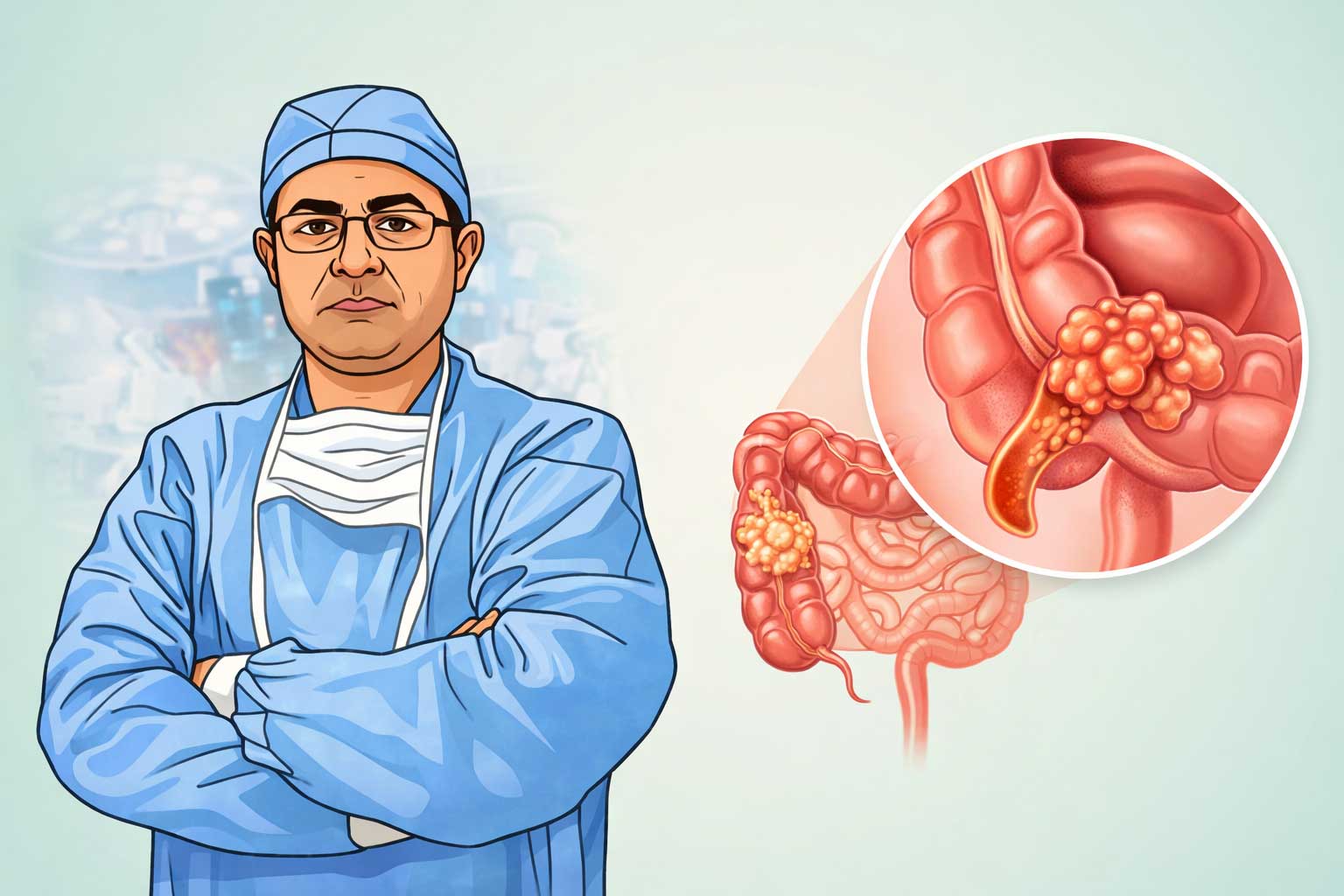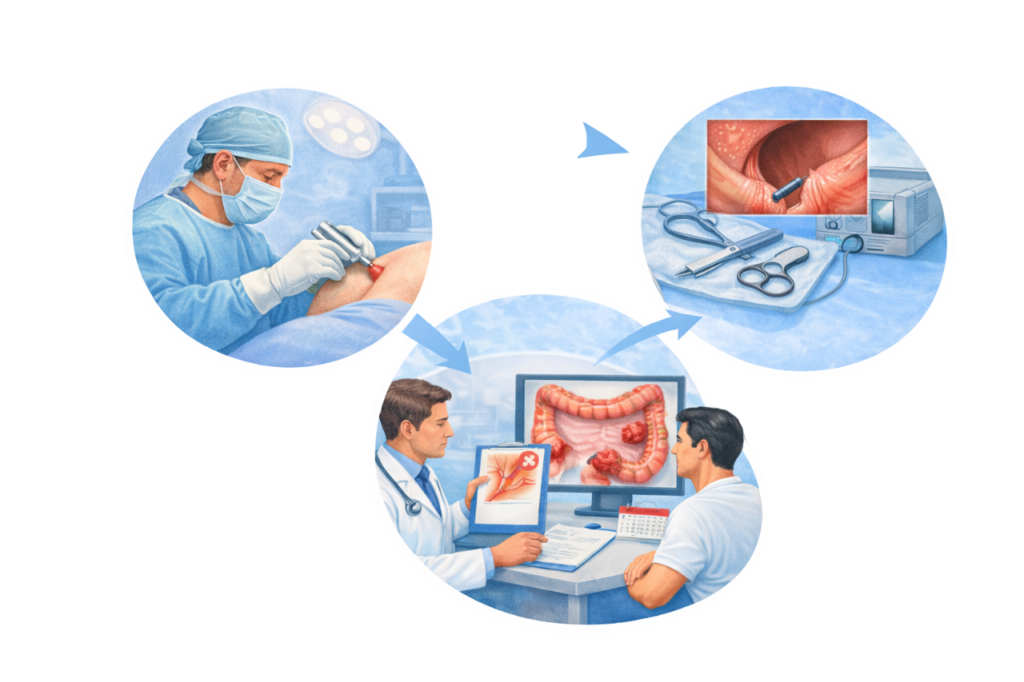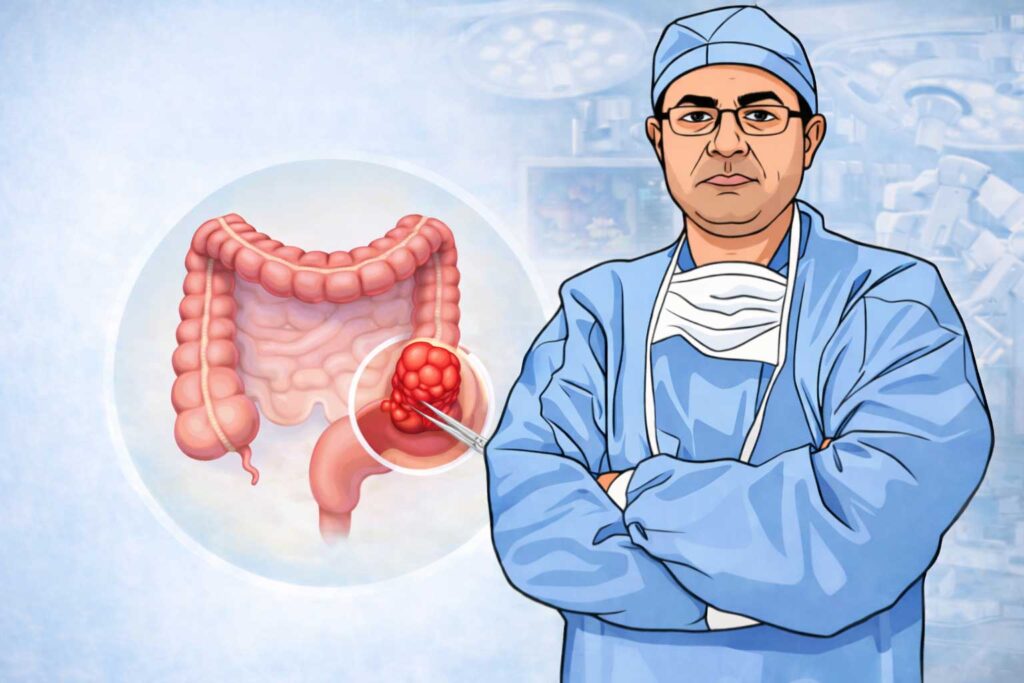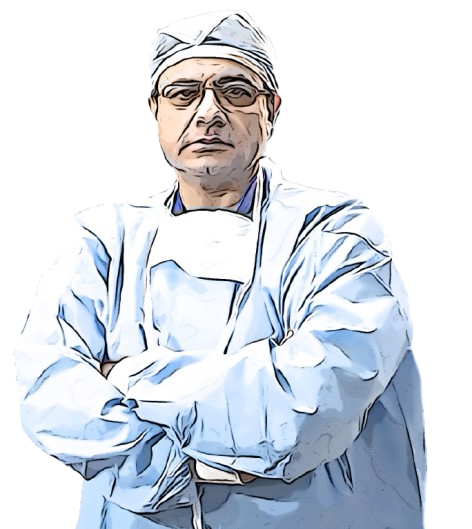Diverticular Disease Treatment in Mohali
Diverticular disease is a condition involving the formation of small pouch-like structures, known as diverticula, in the wall of the large intestine. These pouches are most commonly found in the sigmoid colon and may be present without causing symptoms. When inflammation or infection occurs, the condition is referred to as diverticulitis.
Management of diverticular disease depends on symptom severity, presence of complications, and the patient’s overall health status.

Understanding Diverticular Disease
Diverticula develop when weak areas of the colon wall bulge outward, often associated with increased pressure within the bowel. The presence of diverticula without symptoms is known as diverticulosis. When one or more diverticula become inflamed or infected, it is termed diverticulitis.
The condition is more commonly observed with increasing age and may be influenced by dietary and lifestyle factors.
Diagnosis of Diverticular Disease
Diagnosis is based on clinical evaluation and investigations, which may include:
- Medical history and physical examination
- Imaging studies such as CT scan of the abdomen
- Blood tests to assess inflammation or infection
- Colonoscopy (usually after resolution of acute inflammation)
These investigations help confirm the diagnosis and assess disease severity.
Recovery & Aftercare
After diverticular surgery:
- Hospital stay usually lasts a few days depending on the procedure
- Diet is gradually resumed, starting with liquids and moving to solids
- Light activity is encouraged soon after surgery, but heavy lifting should be avoided for several weeks
- Regular follow-up ensures complete healing and prevention of recurrence
With minimally invasive methods, recovery is faster and patients return to work and normal life earlier.

When Is Surgery Needed?
To fully understand when surgery is needed, it’s important to first learn about Diverticular Disease and Its Complications and how they affect your digestive health.
Surgery is generally recommended when:
- Diverticulitis recurs frequently despite medical therapy
- Complications like abscess, perforation, or fistula develop
- There is significant bleeding from the colon
- The risk of life-threatening infection (peritonitis) is high
Why Choose Dr. Rajeev Kapoor for Diverticular Surgery in Chandigarh?
- Decades of surgical mastery—especially in colorectal conditions including IBD and ulcerative colitis
- Integrated care approach—collaborating with gastroenterologists, oncologists, and multidisciplinary teams for fully rounded treatment plans
- Advanced surgical infrastructure—availability of laparoscopic, sphincter-preserving, and pouch-creation techniques to ensure maximal function and recovery
- Personalized patient care—tailoring treatment to individual lifestyle, goals, and disease patterns to ensure effective, compassionate care

Take the First Step Towards Relief
If you are struggling with recurrent or severe diverticulitis, don’t wait for complications. Consult Dr. Rajeev Kapoor, a leading expert in diverticular surgery in Chandigarh, Punjab, India, for advanced and reliable treatment.
FAQs — Patient-Friendly
Do all patients with diverticulitis need surgery?
No, many patients respond well to medicines and lifestyle changes. Surgery is needed only for recurrent or complicated cases.
What is the success rate of diverticular surgery?
When performed by an experienced surgeon, diverticular surgery is highly successful in providing long-term relief.
Will I need a stoma?
Most patients do not. A temporary stoma is only created in emergency cases or when immediate reconnection is not possible.
How long is recovery after surgery?
With laparoscopic techniques, patients often recover in 2–3 weeks. Open surgery may require longer healing.
Why choose a specialist in Chandigarh?
Consulting an experienced surgeon like Dr. Rajeev Kapoor ensures the latest techniques, personalized care, and treatment close to home.
About the Author of This Information
Dr. Rajeev Kapoor is a practicing surgeon based in Mohali, Punjab. He provides clinical services in the field of gastrointestinal, colorectal, and general surgery. This website is intended for informational and educational purposes only.
Prior to surgery, patients generally undergo:
Disclaimer
The information provided on this page is for general educational purposes only. It is not a substitute for professional medical advice, diagnosis, or treatment. Treatment decisions should be made after consultation with a qualified medical professional, based on individual clinical evaluation.



